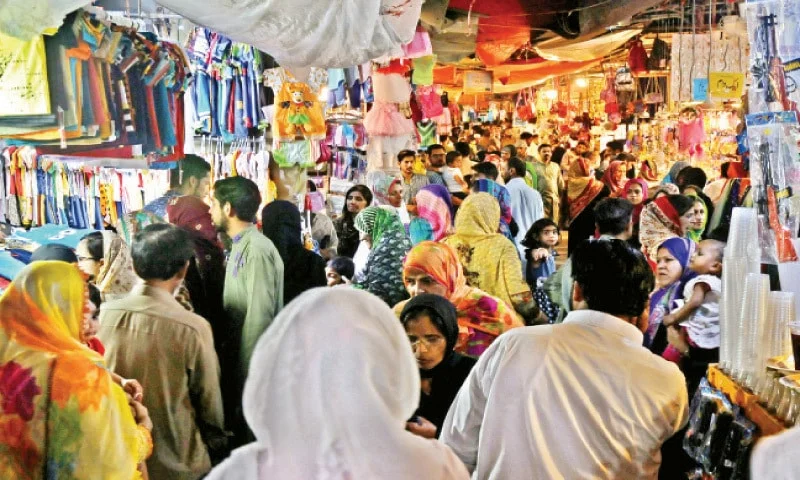Islamabad, Mar 30, 2025: With inflation, economic uncertainty, and rising unemployment affecting the youth, Eid-ul-Fitr has become a period of temporary financial relief.
Across markets, highways, and neighborhoods, hundreds of makeshift stalls have appeared, offering short-term work opportunities to young individuals and other workers.
These pop-up shops sell a variety of products, including men’s, women’s, and children’s ready-made clothing, shoes, and accessories. Given financial constraints, most shoppers are focusing on affordability.
The majority of families are budgeting between Rs 2,500 to Rs 3,000 for Eid-ul-Fitr purchases, with ready-made shalwar kameez priced at Rs 1,500 to Rs 2,000 and shoes or slippers costing up to Rs 1,000.
This trend has led to a surge in sales for vendors offering budget-friendly attire and footwear, while high-end retailers continue to attract those willing to spend on premium products.
READ MORE:
Lake View Park, Daman-e-Koh Declared Family Parks for Eid Holidays
Khawaja Jamal Sethi, Patron-in-Chief of the All Karachi Tajir Alliance, stated that the average Eid-ul-Fitr shopping budget for children in low-income households ranges from Rs 1,500 to Rs 2,000, while adults spend between Rs 2,000 and Rs 2,500.
Many families are limiting their purchases to a single pair of shoes or slippers per person. However, a considerable portion of underprivileged families rely on charity and welfare organizations to participate in Eid festivities.
Muhammad Shahid, a footwear trader at Keamari Masan Chowk, pointed out that inflation has caused a 40% drop in footwear sales compared to last year.
Shoppers are now opting for economical slippers, sandals, and shoes priced between Rs 1,000 and Rs 1,500, in contrast to previous years when many bought multiple pairs.
Despite the economic downturn, middle-class buyers with stable incomes continue to favor Peshawari slippers, prized for their durability and comfort.
Available in over 30 designs and 20 colors, these handcrafted shoes have seen renewed demand, particularly the classic round T-shaped Peshawari slipper. A style that was widely popular before 1990. Prices for these slippers range from Rs 2,500 to Rs 5,500.
Haji Farman Gul, owner of Phul Chappal Maker, shared that his Keamari-based family business has thrived for over 50 years across three generations.
He emphasized that Peshawari slippers are still crafted by hand, requiring precise measurement, leather cutting, and assembly.
The trade follows the traditional “ustad-shagird” (master-apprentice) model, ensuring that the skill is passed down through generations. Eid-ul-Fitr remains their busiest season.
Artisan Resham Gul added that many skilled craftsmen originate from Khyber Pakhtunkhwa (KP). On average, an artisan earns about 30% of the sale price per pair and can produce at least four pairs daily.
Some workers operate under a contract-based wage system, sustaining this traditional craft despite economic challenges.









